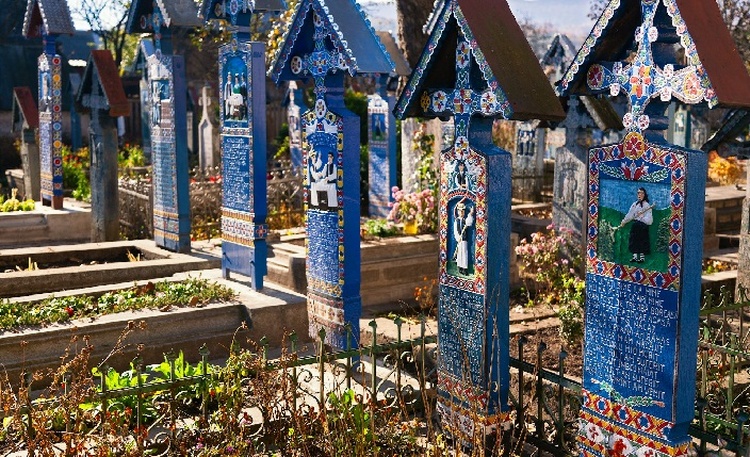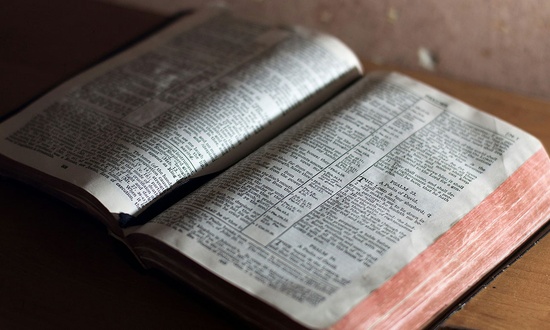de Randy Alcorn
Pe parcursul celor peste patru ani în care iubita mea soție Nanci s-a luptat cu cancerul, am avut de nenumărate ori analize cu rezultate bune, și analize cu rezultate proaste. Am trecut printr-un carusel de emoții prin cele trei operații, trei runde de ședințe de radioterapie și trei runde de chimioterapie la care s-a supus.
Îmi amintesc ca ieri ziua în care doctorul ne-a spus că acum cancerul ajunsese la stadiul patru și că se răspândise la plămâni. În noaptea aceea, ne-am rugat împreună, apoi eu m-am dus jos, m-am așezat pe genunchi lângă canapea, mi-am îngropat fața în mâini și am plâns. Mi-am vărsat inima în fața lui Dumnezeu, implorându-L să intervină. Am făcut ce ni se spune în 1 Petru 5:7 să facem: „Și aruncați asupra Lui toate îngrijorările voastre, căci El Însuși îngrijește de voi.”
Dintr-odată am simțit o prezență lângă mine. Mi-am deschis ochii și am văzut-o pe Maggie, cățelușa noastră Golden Retriever, cum se așezase cu lăbuțele din față lângă mâinile mele. Mi-a aruncat o privire îngrijorată, dar plină de iubire, mi-a lins lacrimile, după care a scos un sunet puternic de jale, pe care nu-l mai auzisem niciodată de la ea și pe care nu l-a mai scos niciodată pe urmă. Mi-a sunat ca un suspin. M-a înfiorat.
Imediat mi-a venit în minte Romani 8:22-23, unde ni se spune că noi, oamenii, suspinăm, toată firea suspină, iar Duhul lui Dumnezeu mijlocește pentru noi cu suspine negrăite. Am realizat faptul că noi trei suspinam împreună pentru Nanci, pe care o iubeam toți – Dumnezeu, eu și cățelușa noastră. Apoi am plâns și mai mult, de data aceasta găsindu-mi mângâiere profundă în cei doi tovarăși ai mei.
Dumnezeul oricărei mângâieri
Un an mai târziu, eram lângă ea când Nanci și-a dat ultima suflare. Am fost profund îndurerat, dar m-am simțit și privilegiat că i-am fost soț și că am fost lângă ea până când moartea ne-a despărțit. În cei peste doi ani care au trecut acum de când ea s-a mutat la Ceruri, i-am simțit lipsa. Îmi lipsesc mesajele pe care mi le trimitea mereu despre câini și fotbal și citatele extraordinare din Charles Spurgeon, J. I. Packer și alții. Îmi este dor de vocea ei și de cum râdea, așa de tare și molipsitor.
Durerea a fost grea. Și cu toate acestea, Dumnezeu mi-a arătat îndurare, oferindu-mi mângâierea care mă ajută să merg mai departe fără ea. (Aici contribuie mult speranța că într-o bună zi mă voi afla din nou împreună cu ea, alături de Isus!) În Psalmul 16:8, David spune: „Am necurmat pe Domnul înaintea ochilor mei. Când este El la dreapta mea, nu mă clatin.” Să-L am pe Domnul înaintea ochilor mei înseamnă să-I recunosc prezența și ajutorul necontenit.
Când copilul cade cu bicicleta, nu is nevoie să-l audă pe tatăl său cum îi spune: „Iubitul meu, uite de ce ai căzut: având în vedere viteza pe care o aveai și greutatea bicicletei, nu puteai coti așa brusc și …”. Nu! Copilul nu are nevoie decât să fie mângâiat. Noi nu avem nevoie de explicații, pe care oricum nu le-am înțelege, în cea mai mare parte a lor. Noi avem nevoie de „Dumnezeu, care mângâie pe cei smeriți” (2 Corinteni 7:6). Milioane de oameni, printre care și eu, mărturisim mângâierea pe care El ne-o dă în cele mai întunecate momente. „… căci Tu mă ajuți și mă mângâi, Doamne!” (Psalmul 86:17).
În cartea Când plânge Dumnezeu, Joni Eareckson Tada și Steve Estes scriu:
„Dumnezeu, asemeni unui tată, nu dă doar sfaturi. El Se dă pe Sine. El devine bărbatul văduvei îndurerate (Isaia 54:5). El devine mângâierea sterpei (Isaia 54:1). El devine tatăl orfanului (Psalmul 10:14). El devine mirele miresei (Isaia 62:5). El este vindecătorul bolnavilor (Exodul 15:26). El este Sfetnicul extraordinar al celor care umblă în întuneric și al celor care umblă în țara umbrei morții (Isaia 9:6).”
Pavel spune: „Dumnezeul oricărei mângâieri, care ne mângâie în toate necazurile noastre, cu mângâierea cu care noi înșine suntem mângâiați de Dumnezeu” (2 Corinteni 1:3-4). Adesea când suntem în suferință, ne gândim doar să primim mângâiere, nu să o dăm. Sunt momente, în suferința noastră, când să primim trebuie să fie singurul nostru obiectiv. Însă când ne mângâie Dumnezeu, primim puterea de a folosi aceeași mângâiere pentru a-i alina pe alții.
Cu toate că El Își revarsă mângâierea asupra noastră direct prin lucrarea Duhului Său Sfânt, lui Dumnezeu Îi mai și place mult să recurgă la alți oameni pentru a ne mângâia. Eu am avut parte de acest lucru prin prietenii mei și prin membrii familiei mele. Primirea și oferirea mângâierii în cadrul familiei lui Dumnezeu aduc o mare bucurie. Să devii instrumentul lui Dumnezeu te împlinește, iar acest lucru este și el o sursă de mângâiere.
Prietenia lui Isus
Isus spune: „Nu vă mai numesc robi, […], ci v-am numit prieteni.” (Ioan 15:15). Acest adevăr extraordinar a devenit pentru mine o mare mângâiere zilnică profundă. De când L-am cunoscut pe Isus, în adolescență, am avut cu El o prietenie. Însă i-am simțit cu adevărat efectul atunci când cea de-a doua cea mai bună prietenă a mea, Nanci, a plecat de lângă mine. Cu toate că și alte prietenii m-au ajutat, pentru mine nimic nu a însemnat mai mult decât prietenia cu Isus. Lucru valabil și în continuare. În fiecare zi.
Niciodată nu m-am simțit mai aproape de El ca acum. Îmi spun singur că acum Nanci locuiește cu prietenul cel mai bun al ei și al meu. Iar eu Îi simt și trăiesc prezența Lui alături de mine în fiecare zi. Când ea a murit, niciunul dintre noi doi nu și-a pierdut cel mai bun prieten. El este în continuare cu amândoi, chiar dacă noi încă nu ne-am regăsit.
Faptul că Isus chiar este și vrea să ne fie prieten este un concept revoluționar pentru mulți creștini. Este adevărat, nu trebuie să negăm niciodată sau să subestimăm faptul că noi suntem robii lui Dumnezeu, iar acest lucru în sine înseamnă o mare chemare. Însă ar trebui să și declarăm în același timp adevărul nemaipomenit că noi suntem copiii și prietenii Lui. Dumnezeu poate și chiar Își iubește robii, însă, cu siguranță, Își iubește cu toată inima copiii și prietenii. Și El vrea să facă totul pentru noi, chiar și când totul ia o altă formă decât cea pe care am fi ales-o noi.
Dwight L. Moody a afirmat: „De ani de zile am o regulă, și anume să-L consider pe Domnul Isus Hristos prietenul meu personal. El nu este un crez, o simplă doctrină; noi pe El Însuși Îl avem.”
Când suntem în suferință, ne dăm seama că suferința în sine ne este tovarăș; însă Isus este tovarășul nostru mai bun și cel mai apropiat prieten. El ne-a spus: „Nicidecum n-am să te las, cu niciun chip nu te voi părăsi.” (Evrei 13:5). Isus este mentorul și cel mai bun prieten al nostru, dar și Mântuitor și Domn. Relația noastră cu El devine mai puternică pe măsură ce petrecem timp cu El, vorbind cu El și ascultând ce are să ne spună. Așa cum spunea Oswald Chambers, „cel mai drag prieten de pe pământ nu este decât o simplă umbră, comparativ cu Isus Hristos.”
Noi Îi vom vedea fața
Suferința și plânsul sunt reale și profunde, însă, pentru copiii lui Dumnezeu, ele sunt temporare. Într-o zi, suferința va lua sfârșit. Pentru totdeauna. Și urmează bucuria eternă. Isus, prietenul nostru veșnic, „va șterge orice lacrimă din ochii lor. Și moartea nu va mai fi. Nu va mai fi nici tânguire, nici țipăt, nici durere.”(Apocalipsa 21:4). Aceasta este promisiunea pe care Isus ne-a făcut-o prin jertfa sângelui Său.
Până atunci, când ne doare inima, să ne întoarcem fața spre Isus, sursa noastră cea mai bună de mângâiere și liniște. „Aceasta este mângâierea mea în necazul meu: că făgăduința Ta îmi dă iarăși viață.” (Psalmul 119:50)
The Comfort and Friendship of Jesus in Our Grief
Over the four-plus years my beloved wife Nanci faced cancer, there were many good reports and many bad ones. We rode a roller coaster of emotions throughout her three surgeries, three rounds of radiation, and three rounds of chemo.
I vividly remember the day when the doctor said it was now stage-four cancer that had spread to her lungs. That night we prayed together, and then I went downstairs, got on my knees by the couch, buried my face in my hands, and wept. I poured out my heart to God, begging Him to intervene. I did what 1 Peter 5:7 tells us to do: “Cast all your anxiety on him because he cares for you” (NIV).
Suddenly I felt a presence beside me. I opened my eyes and saw our Golden Retriever Maggie’s front paws next to my hands. She gave me a look of loving concern, licked my tears, and then made a loud mournful sound she had never made before and never did after. I can only describe it as a groan. It startled me.
I thought immediately of Romans 8 which tells us that we groan, the whole creation groans, and God’s Spirit intercedes for us with groanings too deep for words. I realized that three of us were groaning together for Nanci, who we all loved—our God, myself, and our dog. And then I wept more, this time finding great comfort in both my companions.
The God of All Comfort
A year later, I was there when Nanci took her last breath. I felt profoundly sad, yet so privileged to have been her husband and to be there till death did us part. In the over two years now since she relocated to Heaven, her absence has been palpable. I miss her frequent texts about dogs and football and great quotes from Charles Spurgeon and J. I. Packer and others. I miss the sound of her voice and her laughter, always so loud and contagious.
The grief has been difficult. Yet God has been doing a work of grace in my life, bringing me comfort that allows me to go forward without her. (This is greatly helped by the anticipation of one day being with her again in the presence of Jesus!) In Psalm 16:8 David says, “I have set the LORD always before me; because he is at my right hand, I shall not be shaken.” To set God before me is to recognize His presence and constant help.
When a child falls off a bike, she doesn’t need her father to say, “Sweetheart, here’s why it happened—given your speed and the weight of this bike, it couldn’t tolerate that sharp turn and…” No. The child simply wants comfort. We don’t need explanations, most of which we wouldn’t understand anyway. We need “God, who comforts the downcast” (2 Corinthians 7:6). Millions of people, including me, attest to the comfort He has brought them in their darkest hours. “…you, LORD, have helped me and comforted me” (Psalm 86:17).
Joni Eareckson Tada and Steve Estes write in When God Weeps,
God, like a father, doesn’t just give advice. He gives himself. He becomes the husband to the grieving widow (Isaiah 54:5). He becomes the comforter to the barren woman (Isaiah 54:1). He becomes the father of the orphaned (Psalm 10:14). He becomes the bridegroom to the single person (Isaiah 62:5). He is the healer to the sick (Exodus 15:26). He is the wonderful counselor to the confused and depressed (Isaiah 9:6).
Paul says, “[The] God of all comfort... comforts us in all our affliction, so that we may be able to comfort those who are in any affliction, with the comfort with which we ourselves are comforted by God” (2 Corinthians 1:3–4). Often when we are grieving, we think only of receiving comfort, not giving it. There are times in grief when receiving needs to be our sole focus. But when God comforts us, we are enabled to also use that same comfort to console others.
While He pours out His comfort to us directly by a ministry of His Holy Spirit, God is also fond of using other people to comfort us. I have experienced this through my friends and family members. There is great pleasure in both giving and receiving comfort in God’s family. It’s fulfilling to be His instrument, and that’s a source of comfort as well.
The Friendship of Jesus
Jesus says, “No longer do I call you servants…but I have called you friends” (John 15:15). This stunning truth has become a deep daily comfort to me. Ever since I came to know Jesus as a teenager, I’ve had a friendship with Him; but it really hit home when my second best friend, Nanci, was no longer here for me. While other friendships have helped, nothing has meant more to me than the friendship of Jesus. It still does. Every day.
I have never felt closer to Him than I do now. I tell myself that Nanci now lives with her best friend and mine. And I am experiencing and sensing His presence with me every day. At her death, neither of us lost our best friend. He is still with both of us, even though we are not yet reunited.
That Jesus truly is and wants to be our friend is a revolutionary concept to many Christians. True, we should never deny or minimize the fact that we are God’s servants, and that itself is a high calling. But we should simultaneously affirm the wondrous fact that we are His children and friends. God can and does love His servants, but He certainly loves wholeheartedly His children and His friends. And He intends to do His best for us, even when that best takes a different form than we might have chosen.
Dwight L. Moody said, “A rule I have had for years is to treat the Lord Jesus Christ as a personal friend. His is not a creed, a mere doctrine, but it is He Himself we have.”
As we grieve, we find that grief itself is a companion; but our greater companion and closest friend is Jesus. He has said, “I will never leave you nor forsake you” (Hebrews 13:5). Jesus is our mentor and best friend, as well as Savior and Lord. Our relationship with Him grows as we spend time with Him—talking and listening to Him. As Oswald Chambers wrote, “The dearest friend on earth is a mere shadow compared to Jesus Christ.”
We Will Behold His Face
Suffering and weeping are real and profound, but for God’s children, they are temporary. One day, grief will end. Forever. Eternal joy is on its way. Jesus, our forever friend, “will wipe away every tear from their eyes, and death shall be no more, neither shall there be mourning, nor crying, nor pain.” This is the blood-bought promise of Jesus.
In the meantime, when our hearts ache, let’s turn to Jesus, our greatest source of comfort and peace. “This is my comfort in my affliction, that your promise gives me life” (Psalm 119:50).




